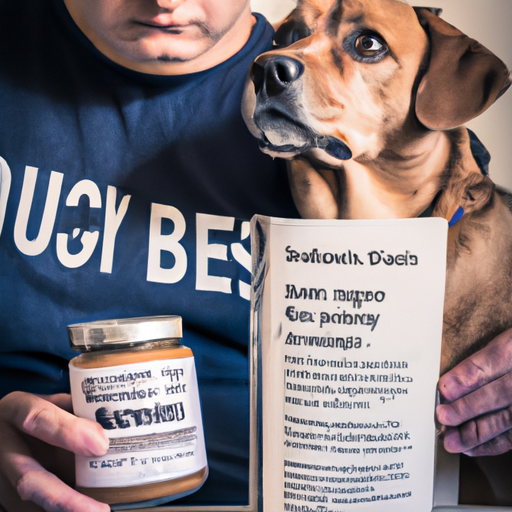For many of us, peanut butter is a pantry staple, a creamy (or crunchy) treat that pairs well with everything from toast to apples. But what about our furry friends? Can dogs eat peanut butter, and if so, how much is safe for them to consume? In this comprehensive guide, we’ll delve into the details of dogs and peanut butter, exploring the benefits and potential risks of this tasty treat.
Key Takeaways:
- Not all peanut butter is safe for dogs
- Xylitol, a common sweetener in some peanut butter brands, is toxic to dogs
- Peanut butter can be a beneficial addition to a dog’s diet when offered in moderation
- How much peanut butter a dog can eat depends on their size, age, and overall health
Table of Contents:
- Is Peanut Butter Safe for Dogs?
- The Dangers of Xylitol
- Benefits of Peanut Butter for Dogs
- How Much Peanut Butter Can a Dog Eat?
- Frequently Asked Questions
Is Peanut Butter Safe for Dogs?
In general, yes, peanut butter is safe for dogs to eat. However, not all peanut butter is created equal, and some brands may contain ingredients that are harmful to dogs.
One of the primary concerns is the presence of xylitol, a common sweetener used in many foods, including some brands of peanut butter. Xylitol is highly toxic to dogs and can cause serious health issues, including liver failure and even death. Always check the ingredient list before sharing your peanut butter with your pooch.
The Dangers of Xylitol
Xylitol is a type of sugar alcohol that is often used as a sugar substitute in a variety of foods, from candy and gum to baked goods and peanut butter. While it’s safe for humans to eat, xylitol is incredibly toxic to dogs. Even small amounts can cause hypoglycemia (low blood sugar), seizures, liver failure, or even death in dogs.
Keep in mind that not all peanut butter contains xylitol, but it’s important to always check the label. For more information on xylitol and its effects on dogs, check out this comprehensive guide from Preventive Vet.
Benefits of Peanut Butter for Dogs
Despite the potential risks associated with xylitol, peanut butter can still be a beneficial addition to a dog’s diet when offered in moderation. It’s a great source of protein, healthy fats, and vitamins B and E. Plus, many dogs love the taste of peanut butter, making it a useful tool for medication administration or training purposes.
OneTopDog has a fantastic article on healthy treats for dogs that includes peanut butter as a top choice, as well as other options to consider.
How Much Peanut Butter Can a Dog Eat?
The amount of peanut butter a dog can safely eat depends on several factors, including their size, age, and overall health.
As a general guideline, peanut butter should make up no more than 10% of a dog’s daily caloric intake. For a medium-sized dog, this might equate to roughly a tablespoon of peanut butter. However, it’s always best to consult with your vet to determine the appropriate amount for your individual dog.
Again, moderation is key. While peanut butter can provide some health benefits, it’s also high in fat and calories, which can contribute to weight gain and related health issues if fed in excess.
For more detailed guidance on how much peanut butter your dog can safely consume, check out this dog calorie calculator.
Frequently Asked Questions
Q: Can I give my dog peanut butter every day?
A: While peanut butter can be a beneficial treat for dogs, it should be given in moderation due to its high-fat and calorie content. It’s best to consult with your vet to determine the appropriate amount and frequency for your individual dog.
Q: What kind of peanut butter is safe for dogs?
A: Look for peanut butter that does not contain xylitol or added sugars. Organic, unsalted peanut butter is typically a safe choice.
Q: Can puppies eat peanut butter?
A: Yes, puppies can eat peanut butter in moderation. However, it’s best to introduce new foods slowly and in small amounts to avoid upsetting their sensitive stomachs.
Q: Can peanut butter cause allergies in dogs?
A: While it’s rare, some dogs can be allergic to peanuts. Signs of an allergic reaction include itching, redness, swelling, and difficulty breathing. If you notice any of these symptoms after giving your dog peanut butter, contact your vet immediately.
In conclusion, peanut butter can be a delicious and nutritious treat for dogs when fed in moderation and free from harmful ingredients like xylitol. Always consult with your vet before introducing new foods into your dog’s diet, and remember to check labels carefully. For more information on dog nutrition and feeding guidelines, visit OneTopDog.



